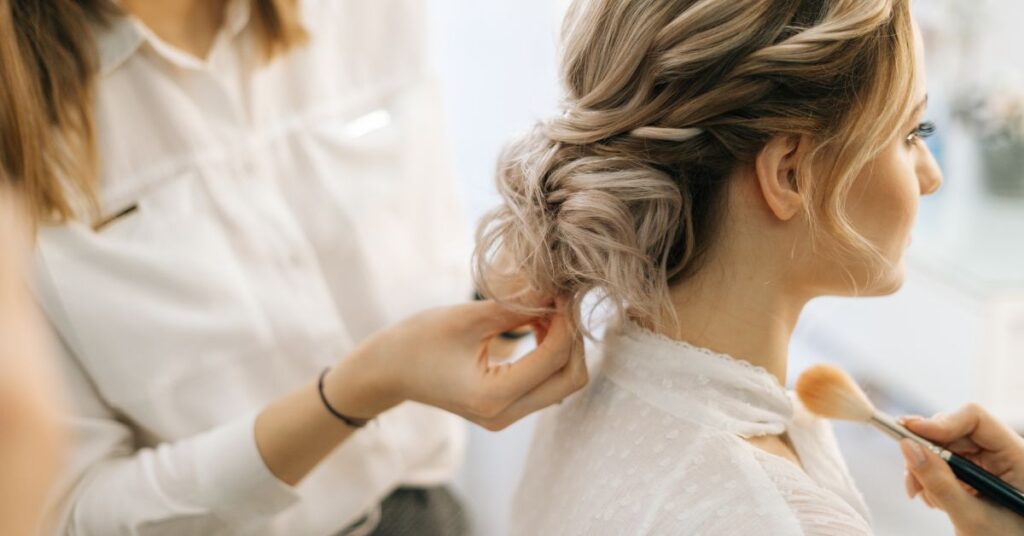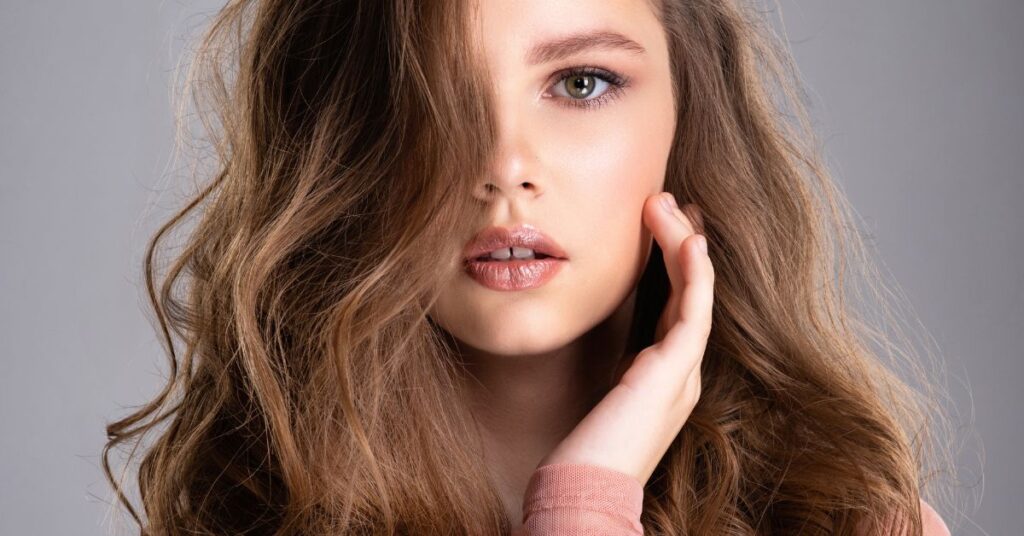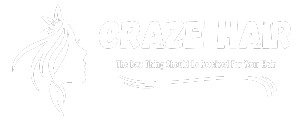
Introduce
Welcome to our guide on enhancing hair growth through diet. Many factors contribute to healthy hair, and one crucial aspect is nutrition. In this article, we’ll explore the top foods that can help stimulate faster hair growth. By incorporating these dietary essentials into your meals, you’ll be on your way to achieving stronger, longer, and healthier hair.
Essential Nutrients for Hair Growth:
Hair growth is influenced by a variety of factors, including genetics, age, and overall health. However, one of the most significant contributors to hair growth is nutrition. Certain vitamins, minerals, and other nutrients play essential roles in supporting the hair follicles and promoting healthy hair growth. Here are some of the key nutrients you should focus on:
Vitamin A: This vitamin is crucial for the production of sebum, an oily substance that helps moisturize the scalp and keep hair healthy. Good sources of vitamin A include sweet potatoes, carrots, spinach, and kale.
Vitamin C: Vitamin C is an antioxidant that helps protect the hair follicles from damage caused by free radicals. It also aids in the production of collagen, which is necessary for hair strength. Citrus fruits, strawberries, bell peppers, and broccoli are excellent sources of vitamin C.
Vitamin D: Low levels of vitamin D have been linked to hair loss, so ensuring an adequate intake is essential for healthy hair growth. Sunlight exposure, fatty fish, egg yolks, and fortified foods like milk and cereal are good sources of vitamin D.
Vitamin E: Vitamin E is another antioxidant that helps protect the scalp and hair follicles from oxidative stress. Nuts, seeds, spinach, and avocado are rich sources of vitamin E.
Biotin (Vitamin B7): Biotin is well-known for its role in promoting healthy hair, skin, and nails. It helps strengthen the hair shaft and may even help prevent hair loss. Foods high in biotin include eggs, nuts, seeds, and sweet potatoes.
Iron: Iron deficiency can lead to hair loss, so it’s essential to consume enough iron-rich foods to support healthy hair growth. Red meat, poultry, fish, lentils, and spinach are all excellent sources of iron.
Zinc: Zinc plays a crucial role in hair tissue growth and repair. It also helps keep the oil glands around the hair follicles functioning properly. Oysters, beef, pumpkin seeds, and lentils are good sources of zinc.
Protein: Hair is primarily made up of protein, so getting enough protein in your diet is essential for strong, healthy hair growth. Incorporate lean meats, poultry, fish, eggs, dairy products, legumes, nuts, and seeds into your meals to ensure an adequate protein intake.
Protein-Rich Foods:
Protein is a fundamental component of hair structure, making it essential for promoting healthy hair growth. Hair follicles require an adequate supply of protein to produce strong, resilient strands. Including protein-rich foods in your diet can help ensure that your hair receives the necessary building blocks for growth and maintenance. Here are some protein-rich foods to incorporate into your meals:
Lean Meats: Opt for lean cuts of meat such as chicken breast, turkey, and lean cuts of beef or pork. These meats are not only rich in protein but also provide important nutrients like iron and zinc, which are vital for hair health.
Fish: Fatty fish like salmon, mackerel, and sardines are excellent sources of protein and omega-3 fatty acids. Omega-3s help nourish the scalp and support hair growth, making fish a valuable addition to a hair-healthy diet.
Eggs: Eggs are a versatile and affordable source of high-quality protein. They also contain biotin and other essential nutrients that support healthy hair growth. Whether scrambled, boiled, or incorporated into dishes like omelets or frittatas, eggs can be easily included in your diet.
Dairy Products: Milk, yogurt, and cheese are rich in protein and calcium, which are both important for hair health. Greek yogurt, in particular, is an excellent choice as it contains more protein and fewer sugars than regular yogurt.
Legumes: Beans, lentils, and chickpeas are plant-based sources of protein that also provide fiber and various vitamins and minerals. Incorporating legumes into your meals can help boost your protein intake while supporting overall health and hair growth.
Nuts and Seeds: Almonds, walnuts, peanuts, and seeds like pumpkin seeds and sunflower seeds are nutritious snacks that are rich in protein, healthy fats, and vitamins like vitamin E and biotin. Sprinkle them on salads, yogurt, or oatmeal, or enjoy them as a standalone snack to reap their hair-healthy benefits.
Soy Products: Tofu, tempeh, and edamame are plant-based sources of protein that can be included in vegetarian or vegan diets. These soy products also contain other nutrients like iron and zinc, making them valuable additions to a hair-healthy eating plan.

Omega-3 Fatty Acids:
Omega-3 fatty acids are a type of polyunsaturated fat that are essential for overall health, including the health of your hair. These fatty acids cannot be produced by the body and must be obtained through diet. Omega-3s play a crucial role in nourishing the scalp, supporting hair follicle function, and promoting hair growth. Including omega-3-rich foods in your diet can help maintain healthy, shiny hair. Here are some sources of omega-3 fatty acids to incorporate into your meals:
Fatty Fish: Fatty fish such as salmon, mackerel, trout, and sardines are among the best sources of omega-3 fatty acids. These fish are not only rich in omega-3s but also provide protein, vitamins, and minerals that support overall health and hair growth.
Flaxseeds: Flaxseeds are one of the richest plant-based sources of omega-3 fatty acids, particularly alpha-linolenic acid (ALA). Grinding flaxseeds or using flaxseed oil allows for better absorption of these essential fatty acids. Add ground flaxseeds to smoothies, yogurt, oatmeal, or baked goods for a nutritional boost.
Chia Seeds: Chia seeds are another plant-based source of omega-3 fatty acids, along with fiber, protein, and various vitamins and minerals. These tiny seeds can be sprinkled on top of salads, added to smoothies, or used to make chia pudding for a nutritious and hair-healthy snack or meal.
Walnuts: Walnuts are a tasty and convenient source of omega-3 fatty acids, as well as protein, fiber, and antioxidants. Snack on a handful of walnuts or add them to salads, oatmeal, or baked goods to incorporate their hair-healthy benefits into your diet.
Hemp Seeds: Hemp seeds are rich in omega-3 fatty acids and also provide protein, fiber, and other essential nutrients. Sprinkle hemp seeds on salads, yogurt, or avocado toast, or blend them into smoothies for a nutritious boost.
Seaweed and Algae: Certain types of seaweed and algae, such as nori, spirulina, and chlorella, are sources of omega-3 fatty acids, along with other nutrients like vitamins, minerals, and antioxidants. Incorporate seaweed or algae into your diet by adding them to soups, salads, or sushi rolls.

Antioxidant-Rich Foods:
Antioxidants are compounds that help protect the body’s cells, including those in the scalp and hair follicles, from damage caused by free radicals. Free radicals are unstable molecules that can cause oxidative stress, leading to cell damage and potentially harming hair health. Including antioxidant-rich foods in your diet can help combat oxidative stress and promote healthier hair. Here are some antioxidant-rich foods to incorporate into your meals:
Berries: Berries such as blueberries, strawberries, raspberries, and blackberries are rich in antioxidants like vitamin C, anthocyanins, and flavonoids. These antioxidants help neutralize free radicals and protect the scalp and hair follicles from oxidative damage.
Dark Leafy Greens: Dark leafy greens like spinach, kale, Swiss chard, and collard greens are packed with antioxidants, vitamins, and minerals that support overall health and hair growth. Incorporate these nutrient-dense greens into salads, smoothies, stir-fries, or soups to boost your antioxidant intake.
Nuts and Seeds: Nuts and seeds such as almonds, walnuts, pecans, sunflower seeds, and pumpkin seeds are rich in antioxidants, including vitamin E and selenium. These antioxidants help protect the scalp and hair follicles from oxidative stress and support healthy hair growth. Enjoy nuts and seeds as a snack or add them to salads, yogurt, or oatmeal for a nutritious boost.
Green Tea: Green tea is loaded with antioxidants called catechins, which have been shown to have protective effects against oxidative damage and promote hair growth. Enjoy a cup of green tea as a refreshing beverage or use it as a base for smoothies or homemade iced tea.
Tomatoes: Tomatoes are rich in antioxidants like lycopene, vitamin C, and beta-carotene, which help protect the scalp and hair follicles from oxidative stress. Enjoy tomatoes fresh in salads, sandwiches, or salsas, or cook them into sauces, soups, or stews to incorporate their antioxidant benefits into your meals.
Avocado: Avocado is a nutrient-dense fruit that is rich in antioxidants like vitamins C and E, as well as monounsaturated fats and other beneficial nutrients. Incorporating avocado into your diet can help support scalp health and promote healthy hair growth. Enjoy avocado sliced on toast, blended into smoothies, or mashed into guacamole for a delicious and nutritious addition to your meals.
Iron and Zinc:
Iron and zinc are two essential minerals that play crucial roles in maintaining healthy hair growth. Both minerals are involved in various processes within the body that support the growth and maintenance of hair follicles. Ensuring an adequate intake of iron and zinc through diet can help prevent hair loss and promote stronger, healthier hair. Here’s how these minerals contribute to hair health and some food sources to incorporate into your meals:
Iron:
Iron is necessary for the production of hemoglobin, a protein in red blood cells that carries oxygen to the body’s tissues, including the hair follicles. Without enough iron, the hair follicles may not receive an adequate oxygen supply, leading to hair thinning and loss. Additionally, iron deficiency can disrupt the hair growth cycle and contribute to hair shedding. Here are some iron-rich foods to include in your diet:
- Red Meat: Beef, lamb, and pork are excellent sources of heme iron, which is more readily absorbed by the body compared to non-heme iron found in plant-based foods.
- Poultry: Chicken and turkey are also good sources of heme iron. Opt for lean cuts of poultry to limit saturated fat intake.
- Fish: Certain types of fish, such as salmon, tuna, and shellfish like shrimp and oysters, provide heme iron as well as omega-3 fatty acids, which further support hair health.
- Legumes: Beans, lentils, chickpeas, and soybeans are plant-based sources of non-heme iron. Pairing these foods with vitamin C-rich foods can enhance iron absorption.
- Leafy Greens: Spinach, kale, Swiss chard, and other dark leafy greens are rich in non-heme iron and other nutrients like vitamin C and folate.
Zinc:
Zinc plays a crucial role in various processes within the body, including DNA synthesis, cell division, and protein synthesis, all of which are important for hair growth and repair. Zinc deficiency has been associated with hair loss and thinning, making it essential to ensure an adequate intake of this mineral. Here are some zinc-rich foods to incorporate into your diet:
- Shellfish: Oysters are one of the best food sources of zinc, providing more zinc per serving than any other food. Other shellfish like crab, lobster, and shrimp also contain zinc.
- Red Meat: Beef, lamb, and pork are good sources of zinc, as well as iron. Opt for lean cuts of meat to limit saturated fat intake.
- Poultry: Chicken and turkey are also sources of zinc, particularly in the dark meat and poultry skin.
- Nuts and Seeds: Pumpkin seeds, hemp seeds, sesame seeds, and pine nuts are all rich in zinc and can be enjoyed as snacks or added to salads, oatmeal, or baked goods.
- Legumes: Beans, lentils, chickpeas, and soybeans provide zinc along with other nutrients like protein and fiber.

Conclusion
In conclusion, maintaining a balanced diet rich in essential nutrients is crucial for promoting faster and healthier hair growth. Incorporating protein-rich foods, omega-3 fatty acids, antioxidant-rich foods, iron, and zinc into your meals can provide the necessary building blocks and support for strong, luscious locks. By nourishing your body from the inside out, you can help ensure that your hair follicles receive the vital nutrients they need to thrive. Remember to hydrate adequately and avoid habits that may inhibit hair growth. By following these dietary recommendations and adopting a holistic approach to hair care, you can enhance the health and vitality of your hair, promoting optimal growth and shine.read more
FAQs (Frequently Asked Questions) about Hair Growth and Nutrition:
1. Can changing my diet really make my hair grow faster?
- Yes, a balanced diet rich in essential nutrients can support healthier hair growth. While diet alone may not dramatically speed up hair growth, providing your body with the necessary nutrients can optimize the conditions for strong, vibrant hair.
2. How long will it take to see results from adjusting my diet for hair growth?
- Results vary from person to person, but you may start noticing improvements in hair health within a few weeks to a few months after making dietary changes. Consistency is key, so continue to prioritize nutrient-rich foods in your diet for long-term benefits.
3. Are supplements necessary for promoting hair growth, or can I get everything I need from food?
- While supplements can be helpful for individuals with specific nutrient deficiencies, it’s generally best to obtain nutrients from whole foods whenever possible. A balanced diet that includes a variety of nutrient-rich foods should provide most of the essential vitamins and minerals needed for healthy hair growth.
4. Can I overdo it on certain nutrients and cause harm to my hair?
- It’s possible to consume excessive amounts of certain vitamins and minerals, which can have adverse effects on hair health and overall well-being. For example, excessive vitamin A intake can lead to hair loss. It’s important to follow recommended dietary guidelines and avoid mega-dosing on supplements without medical supervision.
5. Will drinking more water directly impact my hair growth?
- Staying hydrated is essential for overall health, including the health of your scalp and hair follicles. While drinking more water won’t directly cause your hair to grow faster, adequate hydration supports scalp health, which is important for optimal hair growth and maintenance.
6. Can I eat junk food and still have healthy hair if I take supplements?
- While supplements can help fill in nutrient gaps, they cannot fully compensate for a poor diet. Consuming junk food lacking in essential nutrients may negatively impact hair health and overall well-being, even if you take supplements. Focus on nourishing your body with nutrient-dense foods for the best results.
7. Will these dietary changes also help with other hair-related issues like dandruff or hair loss?
- A healthy diet can contribute to overall scalp health, which may help alleviate certain hair-related issues like dandruff. Additionally, ensuring adequate intake of nutrients like iron and zinc can support hair growth and reduce the risk of hair loss associated with nutrient deficiencies. However, it’s essential to consult with a healthcare professional for personalized advice if you’re experiencing significant hair loss or scalp issues.

